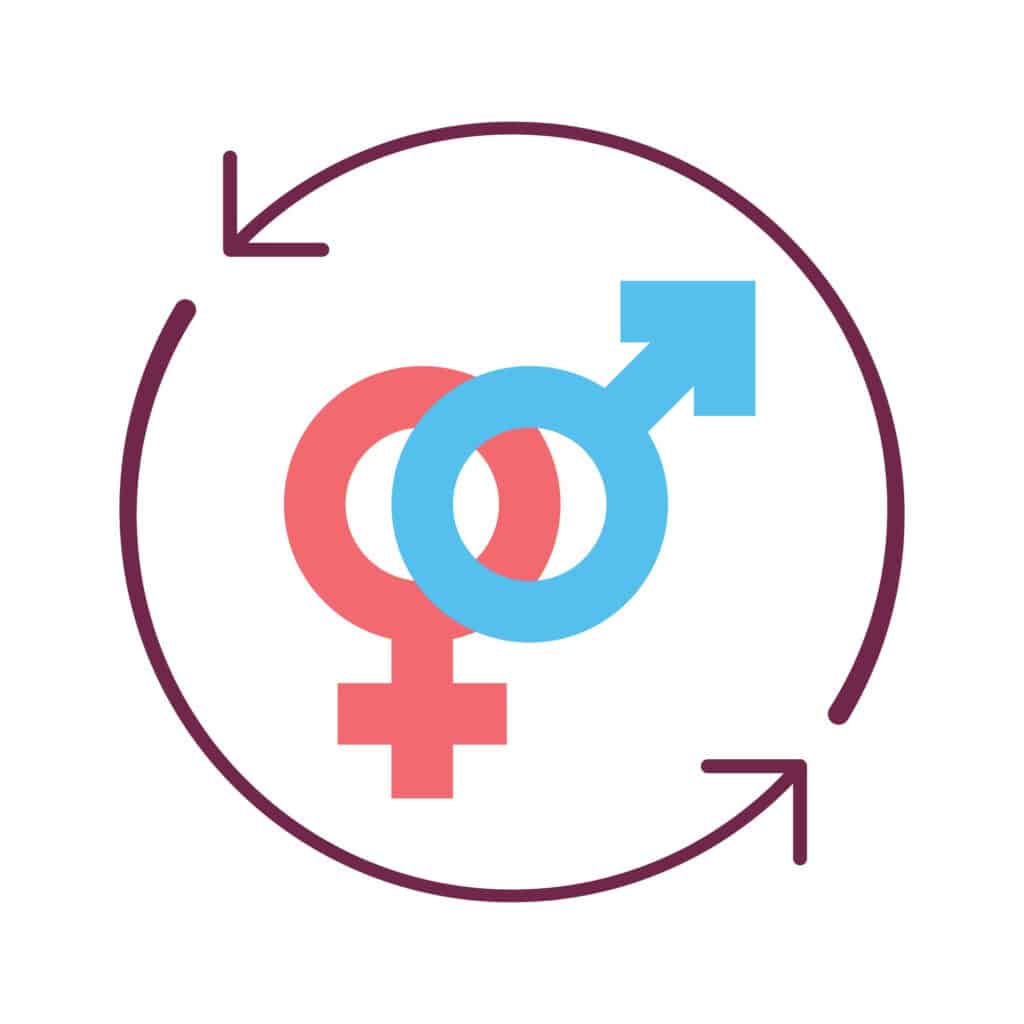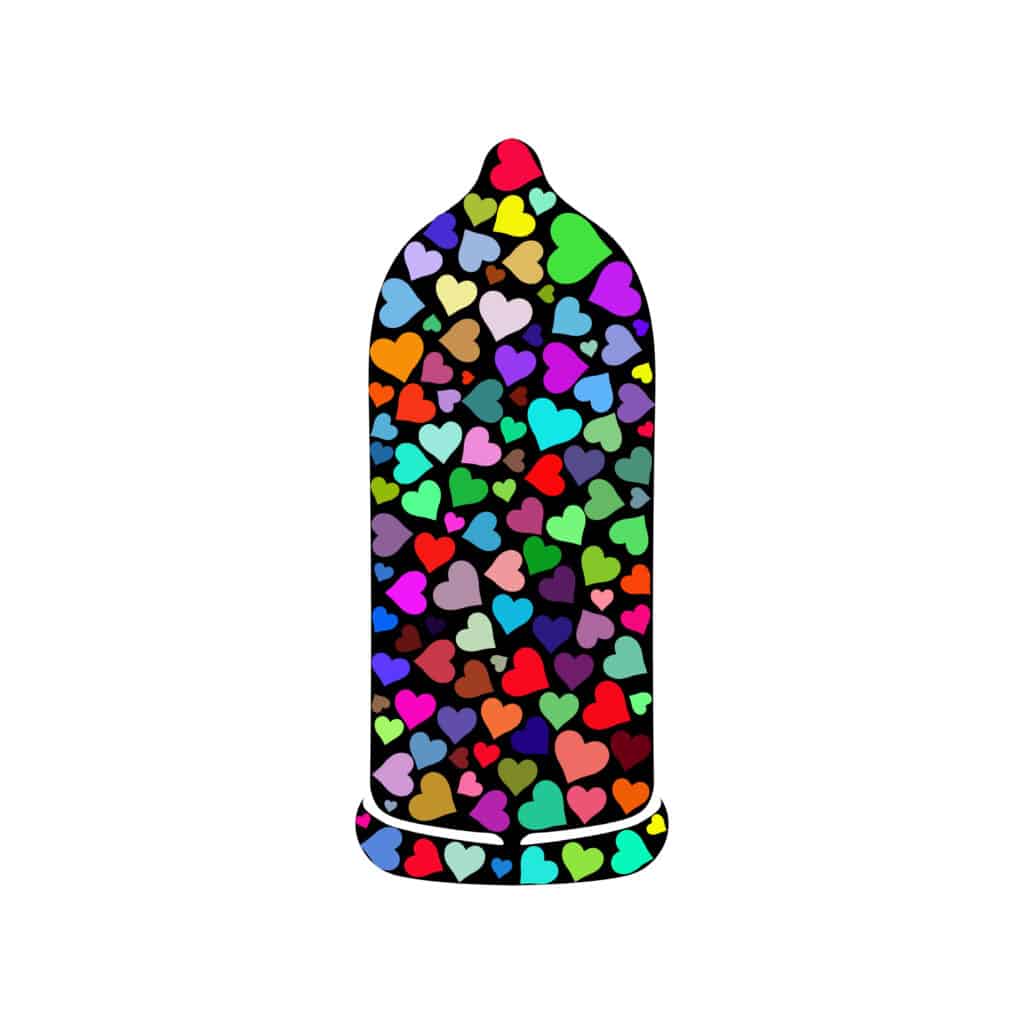Today in places like the US, Canada, and much of Europe, it’s okay to be gay. But that wasn’t always the case; and not only was it not considered okay, but often people were subjected to awful and/or extreme treatments to ‘cure’ them. Such is the case with the now frowned-on conversion therapy, which sometimes employed psychedelics.
What is conversion therapy?
When a person wants to change their religion, we call it converting; and sometimes there’s a class or a process associated with it. Unfortunately, that’s not the kind of conversion I’m talking about. Conversion therapy is a process meant to change a homosexual person into a straight person; and many different tactics have been used including psychotherapy, psychedelics, aversion therapy, chemical castration, electroshock therapy, lobotomies, and so on.
The idea is that a person’s sexual orientation can be changed with the right process. An idea that comes from seeing homosexuality as a mental disorder. In fact, until 1973, is was stated as a mental illness in the DSM (Diagnostic and Statistical Manual of Mental Disorders), which defines psychiatric disorders. As such, it was believed that homosexuality was a result of sex abuse, or some other trauma. And this led to the idea that it could be fixed like other behavioral issues in life.
In different parts of history, being gay was the kind of thing not stated to family members, and often practiced behind closed doors only. It was the kind of thing that made a person hate themselves, and feel inhuman, or unworthy, or even suicidal. Many chose to undergo conversion therapy of their own free will, so as to be considered ‘normal.’

In many other cases, the pressure came from other people’s unhappiness, and the desire to ‘fix’ the broken homosexual friend/family member. No one wanted a gay son or brother. No one wanted to admit they married a gay person who could not change. Plus, society as a whole looked down on it, which added another layer of outside pressure. Imagine everyone thinking you’re deranged before you even open your mouth.
Today, in places all over the world, we celebrate June as Pride month; a month where love and sexuality in general are celebrated, no matter how a person lives their life. But for a very long time it was considered shameful to be gay. And in plenty of places, it still is today.
Psychedelics and conversion therapy
Today, therapy with psychedelics is not geared toward conversion therapy; but rather mind expansion, and fixing emotional issues. At least in terms of general advertisement, its not about changing a person’s sexual identity. Or at least, not unless that’s someone’s personal goal. Back not too long ago, psychedelics were used as a part of conversion therapy; often desired by the person in question, and often pushed on them by outsides pressures.
A great example of a hospital with an Acid Room where conversion therapy was done through psychedelics, is Hollywood Hospital; though it was known for its psychedelic therapy in general. It’s said that big names like Carey Grant and Ethyl Kennedy went there for treatment of some kind with psychedelics. These practices are not publicized now, and it took the research of Canadian scientist and student Andrea Ens to uncover this information. Something she did inadvertently while trying to make a records database for the facility.
After finding one case of a man explaining that use of LSD helped him understand his role in procreation, Ens said “I did some more digging over that summer and found a total of 12 patients who all came to Hollywood Hospital for treatment on the basis of their same-sex attraction to men.” Apparently those seeking treatment wrote a bit about themselves, often with scathing self-criticisms of being “evil”, “devious”, or “not worth procreating.”
Ens noted there was no consistency in backgrounds of the men; they were simply all men who didn’t want to be nonconformists with standard ideas of sexuality. Out of the 12 men Ens found records for, three said through subsequent communication with the hospital that they no longer were homosexual, or at least, not practicing it. Said Ens, “There were some patients who believed that it helped set them on the right path, however they defined the right path. But the fact is we don’t know what happened to most of these patients when they left the hospital doors.”

She pointed out, “These men wanted treatment because they wanted to be loved. They wanted to be happy. They wanted to be accepted by their friends, family, loved ones, co-workers, and society at large, and they believed they could not have these things for themselves if they were homosexual.”
Went on Ens, of the men she researched from the hospital, “Some patients described having suicidal ideation, some described feeling very unsafe as same-sex attracted men in Canadian society, and for very good reason. There was widespread state-sanctioned discrimination against same-sex attracted men.” Ens went on to put out a thesis based on this research, called “Wish I would be normal”: LSD and homosexuality at Hollywood Hospital, 1955-1973.
The landscape of being gay
It wasn’t just that ‘society,’ looked down on being gay; it also was (and still is) illegal in many places. In Canada, police forces were set up to find such homosexual men. It went as far as technology created to measure pupil size and skin changes when looking at homoerotic photos, as a way to gouge who was gay; and get them out of places like public service. The technology was referred to as the ‘Fruit Machine.’ The actual sex between people of the same gender, was a criminal offense in many places.
Same-sex sex wasn’t partially decriminalized in Canada until 1969 under the Criminal Law Amendment Act, 1968–69, called C-150. It wasn’t until 1995 that the Canadian Supreme Court ruled sexual orientation as protected under the Canadian Charter of Rights and Freedoms. And not until 2005 that gay marriage was legalized in the nation.
And this was all in Canada, which has had one of the less-intense homosexual prohibitions, and which is considered one of the most open-minded countries when it comes to social issues. Let’s remember the US only got to same-sex marriage legalization in 2015 through a Supreme Court Ruling. And it didn’t decriminalize it until 2003 with a different Supreme Court ruling.
Even one of the psychedelics movements most influential people, Timothy Leary, made statements about the use of LSD for sexual conversion purposes. In 1966, he told Playboy Magazine, “An enormous amount of energy from every fiber of your body is released under LSD especially sexual energy. There is no question that LSD is the most powerful aphrodisiac ever discovered by man.”

Playboy asked, “According to some reports, LSD can trigger the acting out of latent homosexual impulses in ostensibly heterosexual men and women. Is there any truth to that, in your opinion?” To this Leary answered “the fact is that LSD is a specific cure for homosexuality.”
In a great showing of how even the most open-minded can fall pray to societal beliefs, Leary went on, “It’s well known that most sexual perversions are the result not of biological binds but of freaky, dislocating childhood experiences of one kind or another. Consequently, it’s not surprising that we’ve had many cases of long-term homosexuals who, under LSD, discover that they are not only genitally but genetically male, that they are basically attracted to females.”
Does conversion therapy for homosexuality work?
Conversion therapy is pretty hardcore, and has involved some unseemly, and dangerous methods. The use of psychedelics for conversion therapy began in the 1960’s, when drugs like acid were popularized in the psychiatric community. In terms of results, it must be remembered that many undergoing this therapy desperately wanted to be different; and that researchers like to make names for themselves. For example, in 1962, London-based analyst Joyce Martin put out this study, which claimed that out of 12 patients who underwent conversion therapy with psychedelics under her guidance, seven became heterosexual.
It’s been found, however, that very few respond to this type of therapy. Though there isn’t a huge amount of research, there was a large-scale study carried out on current and former Mormon members, called Sexual orientation change efforts among current or former LDS church members. Out of 1,612 participants, 73% of men and 43% of women had tried to change their sexual orientation. The study found that “the overall results support the conclusion that sexual orientation is highly resistant to explicit attempts at change and that SOCE are overwhelmingly reported to be either ineffective or damaging by participants.”
It wasn’t until 2009 that the American Psychological Association began to condemn conversion therapy in general; based on a review that showed that not only is it not beneficial in changing sexual behaviors; but could increase issues like anxiety, depression and suicide attempts. Homosexuality was in the DSM (Diagnostic and Statistical Manual of Mental Disorders) until 1973, when it was replaced with a code for those ‘distressed by their homosexuality.’ It wasn’t until 2013 that all codes of this kind were removed.
Conclusion
Right now, only 21 states and DC have bans against conversion therapy for minors; though five more partially ban such treatments. 20 states have no law or policy on the books about it at all. As psychedelics are not uniformly legal, if they’re being used in conversion therapy still, it’s very much under the radar. Luckily, the mind-expanding drugs are the subject of very different research at this point in history; with many states looking to legalize their use, and two that already have.
Welcome to our independent rag! We appreciate you joining us at Cannadelics.com; where we work daily to report on the best stories involving cannabis, hallucinogens, and the drug world at large. Hang out with us whenever possible for regular updates; and check out the Cannadelics Weekly Newsletter, so you always know what’s going on.